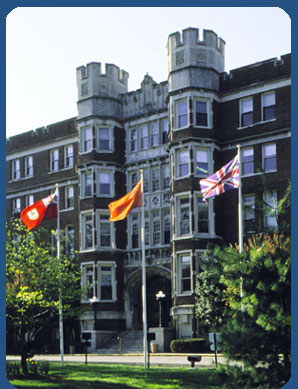| Women's Intellectual Contributions to the Study of Mind and Society Students, as part of an advanced seminar, examined and wrote about the lives of these women,
their intellectual contributions, and the unique impact and special problems that being female had
on their careers. |  |
| For information about referencing this paper - Click Here |
Women's Ways of Knowing ProjectResearchers Mary Field Belenky, Blythe McVicker Clinchy, Nancy Rule Goldberger, and Jill Mattuck Tarulet
|
The Women's Ways of Knowing Project is worth being included in a study of women's contributions to mind and society because women conducted the study and it focused specifically on the way women think. Culminating in a book entitled Women's Ways of Knowing: The Development of Self, Voice and Mind, Mary Field Belenky, Blythe McVicker Clinchy, Nancy Rule Goldberger, and Jill Mattuck Tarule analyzed and coded 135 in-depth interviews that asked women about their gender, their relationships, their ways of knowing and moral dilemmas. From their research, they formulated a theory consisting of five types of knowing from which women perceive themselves and approach the world. They saw that the way that women think about education and learning also affects their self-perception.
The first of these ways of knowing is silence, where one blindly follows authority, sticks with stereotypes, and has a very hard time defining oneself. Next is received knowledge, where one listens the voices of others, followed by subjective knowledge, where one listens to oneself and severs their sense of obligation to follow others views. The next category is procedural knowledge, consisting of connected knowing and separate knowing. Connected knowers believe that truth is "personal, particular, and grounded in firsthand experience" (Belenky, Clinchy, Goldberger, and Tarule, 1997, p. 113). They attempt to find truth through listening, empathizing, and taking impersonal stances to information, whereas separate knowers completely exclude their feelings from making meaning and strictly rely on reason. The last way of knowing that Belenky, Clinchy, Goldberger and Tarule define is constructed knowledge, where one integrates their own opinions and sense of self with reason and the outside world around them.
Based upon the work of Gilligan and Perry, the Women's Ways of Knowing Project has encountered criticism similar to criticism of Gilligan: their work has not been proven replicable, either because it has not been tried or, like Gilligan, it cannot be done. Furthermore, case studies are the least scientific method of research. Despite problems that many may have with this research, Belenky, Clinchy, Goldberger and Tarule's work is continually cited in many university classes focusing on feminism and psychology of personality.
Each of the researchers now works on topics stemming from the project. Jill Mattuck Tarule has published articles on returning adult students (Bibliography, n.d.). Mary Field Belenky "works with a variety of educational and community organizations interested in supporting marginalized people to develop a voice, claim the powers of mind, and have a greater say in the way their families and communities are being run" (Instructor Bio, n.d.). Blythe McVicker Clinchy studies "connected knowing" with her colleagues (Belenky, Clinchy, Goldberger, and Tarule, 1997). Nancy Rule Goldberger researches "diversity in ways of knowing, exploring how culture, social power differentials, and the bicultural experience in the U.S. affect individual strategies for knowing (p. xxiii). In 1997, they published a book of essays on topics related to Women's Ways of Knowing entitled Knowledge, Difference and Power: Essays Inspired by "Women's Ways of Knowing."
References
- Belenky, M. F., Clinchy, B. M., Goldberger, N. R., and Tarule, J. M. (1997). Women's ways of knowing: The development of self, voice and mind. Tenth anniversary edition. New York: Basic Books.
- Bibliography for Jill Mattuck Tarule. (n.d.) Retrieved November 24, 2002, from: http://www.iste.org/jrte/28/5/christie/references/tarule.cfm
- Goldberger, N. R., Tarule, J. M., Clinchy, B. M., & Belenky, M.
F. (Eds.) (1997). Knowledge, difference, and power: Essays inspired by Women's ways
of knowing. New York: Basic Books.
- Instructor bio for Mary Field Belenky. (n.d.) Bringing the excluded and silenced into voice. Retrieved November 24, 2002, from: http://www.thecclc.org/Gathering/excluded_silenced.html
Back to Women's Page
